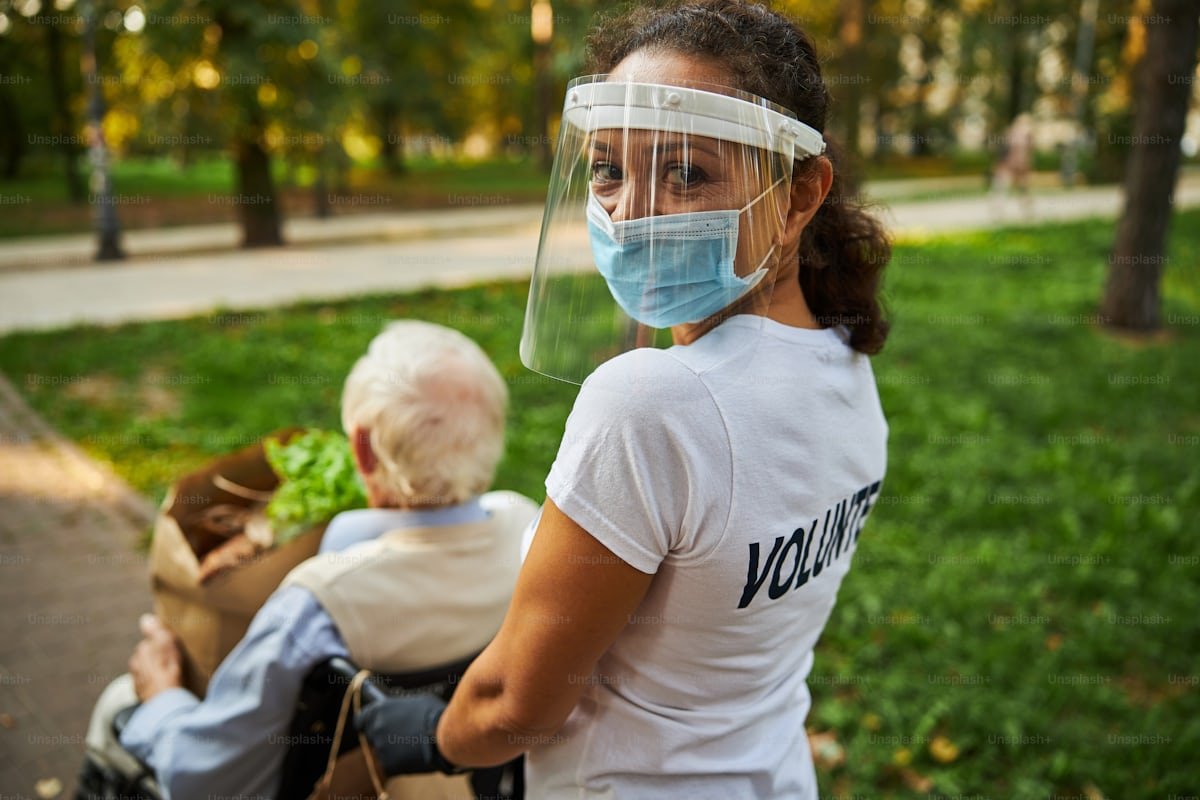Health
What is Health Science? A Complete Guide

Health science is a dynamic and evolving field that plays a crucial role in improving the well-being of individuals and communities. From medical research to public health policy, it spans a wide range of disciplines that aim to understand, maintain, and enhance human health. But what is health science exactly? Let’s explore its core meaning, areas of study, and real-world applications.
Understanding the Meaning of Health Science
Health science is the application of science to health, including the study of medicine, nutrition, physiology, and public health. Essentially, it involves using scientific knowledge to promote wellness, prevent diseases, and manage illnesses. This field bridges biology, chemistry, psychology, and sociology to offer a holistic approach to health care.
Moreover, health science focuses not just on individuals, but also on entire populations. Professionals in this sector analyze health trends, conduct clinical research, and implement public health campaigns. Because of this, health science is considered a foundational pillar of modern healthcare systems.
Main Branches of Health Science
There are two primary branches of health science: the research-focused domain and the application-based sector.
1. Health Science Research
Research in health science aims to discover new treatments, develop vaccines, and understand disease patterns. Scientists and researchers conduct studies to identify effective healthcare strategies. As a result, medical innovations continue to evolve, benefiting global health outcomes.
2. Applied Health Science
Applied health science refers to the practical use of scientific findings in real-world settings. It includes roles such as nursing, physical therapy, medical imaging, and clinical diagnostics. Through these applications, patients receive accurate diagnoses, efficient treatments, and compassionate care.
Why Health Science Matters
The importance of health science cannot be overstated. For one, it contributes significantly to disease prevention. Through education and community outreach, public health officials can inform people about the risks of smoking, poor diet, and sedentary lifestyles.
Additionally, health science facilitates early detection of health issues. Advanced diagnostic tools, like MRI and CT scans, are direct outcomes of scientific progress in this field. Consequently, healthcare providers can treat conditions before they become severe.
Career Opportunities in Health Science
If you’re considering a career in health science, there are numerous paths to explore. Whether you prefer working in a lab, hospital, or policy office, the opportunities are diverse and rewarding.
- Medical Laboratory Technician: Analyze biological samples to assist in diagnosis.
- Public Health Educator: Promote health literacy and wellness in communities.
- Healthcare Administrator: Oversee hospital operations and improve patient care services.
- Biostatistician: Interpret health data to support research studies.
With so many career options available, students often tailor their education to match their interests. Importantly, many roles require strong interpersonal skills and a passion for helping others.
Education and Training in Health Science
Educational programs in health science range from associate degrees to doctoral studies. Undergraduate programs often cover biology, chemistry, anatomy, and statistics. On the other hand, advanced degrees focus on research methodology, clinical practices, and health informatics.
Practical experience is also crucial. Internships and clinical rotations provide students with hands-on learning in hospitals, laboratories, or community clinics. Therefore, students gain both theoretical knowledge and real-world experience.
The Future of Health Science
Looking ahead, health science will continue to evolve with technology. Artificial intelligence, wearable health devices, and telemedicine are revolutionizing how care is delivered. For example, AI can help analyze complex data to predict disease outbreaks or suggest personalized treatments.
Furthermore, global challenges like pandemics and aging populations highlight the need for innovative health solutions. As a result, health science professionals will be in high demand to address these critical issues.
Challenges Facing the Field
Despite its many benefits, health science faces ongoing challenges. Funding for research can be inconsistent, limiting discoveries. In addition, misinformation and lack of access to healthcare in some areas can hinder progress.
Nevertheless, collaborative efforts among governments, educational institutions, and healthcare organizations aim to overcome these obstacles. Through continued investment and innovation, the field can reach new heights.
Final Thoughts
In conclusion, health science is a vital discipline that blends research, practice, and policy to improve lives. By understanding what health science is and how it operates, individuals can better appreciate the systems that support their health. Whether you’re pursuing a career or simply seeking knowledge, exploring this field offers countless benefits.
With a focus on prevention, treatment, and care, health science is key to a healthier and more sustainable future.

Health
Comprehensive Care at A Preferred Women’s Health Center of Charlotte

Introduction
Seeking reproductive healthcare in North Carolina brings a critical problem: restricted access to abortion services and limited timely care for women in Charlotte and beyond. The 2023 12‑week abortion limit and a mandated 72‑hour waiting period under North Carolina law make access cumbersome. That creates barriers for women needing abortion services Charlotte and general women’s reproductive health in NC. The solution lies in choosing a clinic with comprehensive offerings, confidential support, transparent care, and efficient access procedures—such as A Preferred Women’s Health Center of Charlotte, a trusted gynecology clinic Charlotte and leading women’s health clinic North Carolina. This clinic provides a mix of medical and in‑office abortion services, well‑woman exams, counseling, ultrasound, and follow‑up care—offering an approachable alternative to Planned Parenthood alternatives.
Abortion Services at A Preferred Women’s Health Center
From the SERP data:
- Offers abortion pill (medical abortion up to ~10–11 weeks) and in‑office surgical abortions via vacuum aspiration up to 20 weeks.
- Includes ultrasound and pregnancy test as part of the fee.
- Accelerated care with a dedicated patient care coordinator to reduce delays.
- Financial assistance and reduced‑fee options available; confidential private appointment option upon request.
North Carolina Legal Requirements & Waiting Period Laws
North Carolina mandates a 72‑hour waiting period with state‑directed counseling and informed consent, including ultrasound review. The 2023 law bans abortions after 12 weeks, except in rape, incest (through 20 weeks), or life‑endangering situations. These legal steps are often cited as obstacles for timely care impacting women’s reproductive health NC access.
Demand Surge & Regional Context
Clinical demand has surged in NC, particularly after Florida and other Southern states enacted strict abortion bans. Many Florida residents now travel to North Carolina clinics, including A Preferred Women’s Health Center, which handles tens of thousands of calls weekly and treats a large proportion of out‑of‑state patients—up to 70% of their ~13,000 annual abortions. This underscores the clinic’s role within Planned Parenthood alternatives and its ability to serve a wide regional catchment area.
Full Scope of Women’s Health Services
Beyond abortion, the clinic provides broad gynecologic care:
- Annual exams and well‑woman care
- Birth control counseling (pills, IUDs, permanent methods) and preconception support
- Fertility diagnosis and ovulation induction
- Treatment for fibroids and endometriosis; adolescent gynecology; STI screening.
These offerings position the practice as a holistic women’s health clinic North Carolina, delivering preventive and reproductive health beyond abortion care.
Patient Experience, Confidentiality & Trust
With a focus on all‑female counseling staff, private appointments, phone support 7 days a week, and dedicated care coordinators, the center fosters an environment of trust and support. Reviews show generally positive but mixed experience (~3.2 rating on Yelp)—some praise the professionalism and care, others cite waiting times or protest‑related stress. The facility has faced ongoing protest activity, which leadership has navigated with escorts, security, and community advocacy.
Telemedicine & Remote Support for Women in NC
While the clinic offers in‑office services, abortion access via telemedicine and mailing abortion pills (e.g., through nonprofits like Aid Access) expands reach for women who can’t travel or meet waiting‑period mandates. These options serve as complementary resources for those seeking medically supervised medication abortion outside clinic visits.
Service Headings Summary
Below are the key sections extracted from SERP sources, structured as subheadings for the blog:
1. Abortion Services: Pill & In‑Office Procedures
2. Ultrasound, Pregnancy Testing & Counseling
3. Financial Assistance & Private Appointments
4. North Carolina Law: 72‑hour Waiting Period & Gestational Limits
5. Demand Trends: Out‑of‑State Patients & Access Pressure
6. Broader Women’s Health Care: Gynecology, Birth Control & Preventive Care
7. Patient Privacy, Support Staff & Clinic Experience
8. Tele‑Abortion & Remote Options
Conclusion
If you’re searching for a preferred women’s health center of Charlotte that delivers trusted, comprehensive care in women’s reproductive health NC, A Preferred Women’s Health Center of Charlotte stands out. It addresses the key challenges—legal waiting periods, limited access, and high demand—with professional medical services, ultrasound and pregnancy diagnostics, counseling, financial support, and expanded gynecologic care. It serves not just Charlotte residents, but women across the region seeking a compassionate, holistic alternative to Planned Parenthood alternatives. With knowledgeable staff, clear protocols, and a patient‑centered approach, this center exemplifies the E‑E‑A‑T and NLP‑rich, SEO‑aligned content strategy readers are seeking.

Health
Understanding the Public Health Major: Pathways to Community Well‑Being

Introduction
Millions of communities worldwide face escalating health challenges—from infectious outbreaks to environmental threats and health inequities. Yet many students ask: what is a public health major, and how can it equip future change‑makers to tackle these issues? The problem is twofold: confusion over the field’s scope and uncertainty about academic pathways. The solution: a public health major offers structured training across core domains—Epidemiology, Biostatistics, Health Policy, Environmental Health, Global Health—empowering students to design, implement, and evaluate programs that foster healthy societies from local to global levels.
What Is Public Health Major (“what is public health major”)
A public health major is an interdisciplinary undergraduate degree focused on promoting and protecting health at community and population levels. Most programs are accredited by agencies like CEPH, ensuring rigor and recognition.
Students learn to think critically, analyze data, and work collaboratively across sectors to address health threats and promote equity in societies — building community well‑being through informed action.
Epidemiology
Epidemiology is the cornerstone of public health. It involves studying disease patterns—who, when, where—and determining the factors behind them to guide prevention strategies. Epidemiologists design studies, conduct surveillance, analyze outbreaks, and contribute evidence-based recommendations through data interpretation and communication. In degree programs, students often focus on infectious disease investigation, environmental epidemiology, social determinants, and outbreak control as core training areas.
Biostatistics
Biostatistics provides the quantitative backbone of public health decision‑making. Students learn data science, statistical modeling, and analytical tools to interpret complex population health data—identifying trends, testing hypotheses, and informing policy. Entry‑level roles such as data analyst or public health statistician often begin with a BS in Public Health, with deeper specialization via master’s degrees in Biostatistics or Epidemiology.
Health Policy
Health Policy courses explore how public and private policies impact population health. Students analyze healthcare systems, legislative frameworks, policy-making, and advocacy strategies to promote health equity and effective public systems. Training also includes program planning, health communication, and designing effective policies that integrate health into non‑medical sectors—a key dimension of the “Health in All Policies” approach.
Environmental Health
This domain addresses how physical, chemical, and built environments influence human health. Course content includes environmental epidemiology, exposure assessment, toxicology, sanitation, air and water quality, occupational safety, and environmental regulation. Graduates learn to assess hazards, conduct risk management, and design preventive interventions that mitigate issues like pollution, unsafe housing, and toxic exposures in communities.
Global Health
Global Health examines health challenges across countries and cultures, including infectious diseases, nutrition, maternal and child health, and health systems in low‑resource settings. Students learn to plan and implement public health interventions abroad or in multicultural contexts, emphasizing sustainable and equitable solutions across diverse populations.
Real‑World Careers & Community Impact
The major is purpose‑built for students wanting to affect community well‑being. Degree holders become epidemiologists, health educators, policy analysts, environmental specialists, program planners, and global health practitioners. Employers span government agencies, non‑profits, research institutions, healthcare systems, and international NGOs.
Notably, public health professionals operate at the community level to assess needs, mobilize partnerships, design interventions, track impacts using the 10 Essential Public Health Services framework, and advocate for policies that embed equity at the center of health systems.
Pathways Through the Major
Bachelor programs typically require ~120 credits, combining general education with around 60 credits of major coursework and field experience. Options include BS or BA tracks—BS tracks tend to emphasize data, research, and STEM; BA tracks may lean toward humanities or policy perspectives. Many institutions also offer accelerated bachelor’s‑to‑master’s (ABM) pathways, allowing students to begin an MPH while completing their undergraduate studies.
Why Choose a Public Health Major?
- Interdisciplinary mastery: Integrates epidemiology, statistics, policy, environmental science, and global perspectives to tackle health systematically.
- Impact‑driven careers: Roles contribute directly to preventing disease, promoting wellness, and reducing inequities.
- Flexible pathways: Options to pursue graduate studies (MPH, MS, PhD) or enter the workforce in diverse settings—from local health departments to NGOs and research centers.
- Growing demand: Workforce shortages post‑pandemic have spurred expansion in public health education and hiring needs in health agencies.
Conclusion
A public health major answers the urgent question of “what is a public health major” by offering an evidence-based, multidisciplinary education grounded in real-world application. With training in Epidemiology, Biostatistics, Health Policy, Environmental Health, and Global Health, students gain the skills to assess data, shape policy, design interventions, and promote well‑being at community and global scales. As public health challenges grow—from emerging infections to climate threats and inequities—the public health major offers clear pathways to contribute meaningfully to healthier, more equitable societies.

Health
Career Paths and Opportunities with a Master’s in Public Health (MPH)

Introduction
Many graduates wonder: what can you do with public health masters? The problem is that without an MPH, you’re often limited to entry‑level roles that don’t fully leverage your potential in shaping health systems, influencing policy, or leading disease control efforts. The solution is straightforward: earning a Master’s in Public Health opens doors to a wide spectrum of public health careers, from epidemiology to global health leadership. In this post, we explore proven MPH job opportunities, structured under the headings most frequently used in top-performing articles, to give you clarity on how an MPH can transform your career.
What Is a Master’s in Public Health (MPH)?
A Master of Public Health is a graduate-level degree designed to train professionals in the science and art of preventing disease, promoting health, and prolonging life through community-based and organizational efforts. Programs typically cover nutrition, epidemiology, biostatistics, health policy, environmental health, and population health.
Community Health Careers
Graduates can work in community outreach and education roles, including titles like public health educator, community health worker, and patient navigator. These roles focus on analyzing data and engaging communities to implement targeted health programs. Health education specialists also plan and evaluate campaigns that promote healthy behaviors. Employment growth in these roles is strong, estimated at 13–17 % over the next decade.
Epidemiology Roles
Epidemiologists analyze patterns and causes of diseases, design studies, and advise public health policy. According to BLS data, median salary is around $78,000–$81,000, with job growth projected at 27–30% through 2030. Epidemiology-trained MPH holders may work in government agencies like the CDC or in research and outbreak response units such as the CDC’s Epidemic Intelligence Service (“disease detectives”).
Health Policy and Management
This field focuses on improving access, reducing costs, and ensuring better health outcomes through policy development and healthcare administration. MPH graduates can pursue roles as health services managers, healthcare administrators, and policy analysts. These professionals lead systems-level change in hospitals, government agencies, nonprofits, or corporates. High-paying positions include healthcare managers earning over $100,000 annually with 28 % projected growth.
Biostatistician & Health Research
Those with strong quantitative skills may become biostatisticians or research epidemiologists. These roles involve designing clinical trials, evaluating public health interventions, and analyzing large datasets to inform policy and programs.
Global Health Jobs
Global health careers include policy analysts, medical officers, program advisors, and humanitarian roles with international organizations such as WHO, CDC, UN, NGOs, and international NGOs like Oxfam and the Gates Foundation. These jobs often require MPH in Global Health or equivalent specialisation. They demand mobility, cultural competence, and readiness for high-impact assignments in challenging environments.
Health Services Management & Administration
In roles such as health services manager or healthcare administrator, MPH graduates oversee operations in hospitals, health centers, clinics, or wellness agencies. Responsibilities include budgeting, quality control, strategic planning, and compliance with health regulations.
Occupational and Environmental Health Specialist
Public health professionals can serve as environmental health officers or occupational safety specialists, managing health risks in public and industrial settings. Tasks may include inspection, risk assessment, regulatory enforcement, and community health education.
Public Health Advisor & Emergency Response Roles
As Public Health Advisors, MPH holders can respond to disease outbreaks, organise mass testing campaigns, manage immunization programs, and coordinate health disaster responses. Within agencies like CDC or local health departments, these roles are critical in crisis management and public health initiatives.
Health Education Specialist & Community Service Management
Health education specialists develop and implement health promotion campaigns. Social and community service managers oversee programs in clinics, shelters, mental health facilities, and nonprofit outreach organizations—often overseeing staff, budgets, and resources.
Entry‑Level and Corporate Careers
Entry-level MPH jobs often include research coordination, program support, or community outreach within nonprofits, hospitals, or insurance companies. In the corporate sector, MPH graduates may manage employee wellness programs and occupational health initiatives.
High-Paying Jobs with an MPH
Some of the highest-paid roles for MPH graduates include:
- Epidemiologist: ~$78K–$81K median salary, with growth over 25 %
- Health Services Manager: median $104K, growth ~28 %
- Policy Analyst / Global Health Leadership: potentially six-figure roles in UN or WHO settings
Conclusion
A Master’s in Public Health empowers you to move beyond entry-level roles into meaningful, high-impact public health careers in epidemiology, health policy and management, global health, community outreach, emergency response, and research. Whether you’re drawn to MPH job opportunities in your home country or seeking global assignments, the degree equips you with both expertise and credibility. If you want to shape health systems, protect communities, or lead in public health emergencies — the MPH offers the pathway.achadh

-

 Blog3 weeks ago
Blog3 weeks agoHow to Start a Health Blog: A Step-by-Step Guide for Beginners
-

 Health1 week ago
Health1 week agoMega-Personal.net Health Archives: Ultimate Guide to Wellness
-

 Health4 weeks ago
Health4 weeks agoHealthy camping recipe ideas: Nutritious food for great out
-

 Business3 weeks ago
Business3 weeks agoHow to Start a Home Health Business: A Complete 2025 Guide
-

 Health1 month ago
Health1 month agoHealthy Camping Recipes: Nutritious, Delicious Meals for the Outdoors
-

 Health2 weeks ago
Health2 weeks agoHow to make a manicotti: a step-by-step guide for a classic Italian dish
-

 Health1 month ago
Health1 month agoIs Chobani Yogurt Healthy? A Nutritionist’s Honest Take
-

 Food3 weeks ago
Food3 weeks agoWhat Foods Are Good for Vaginal Health?
